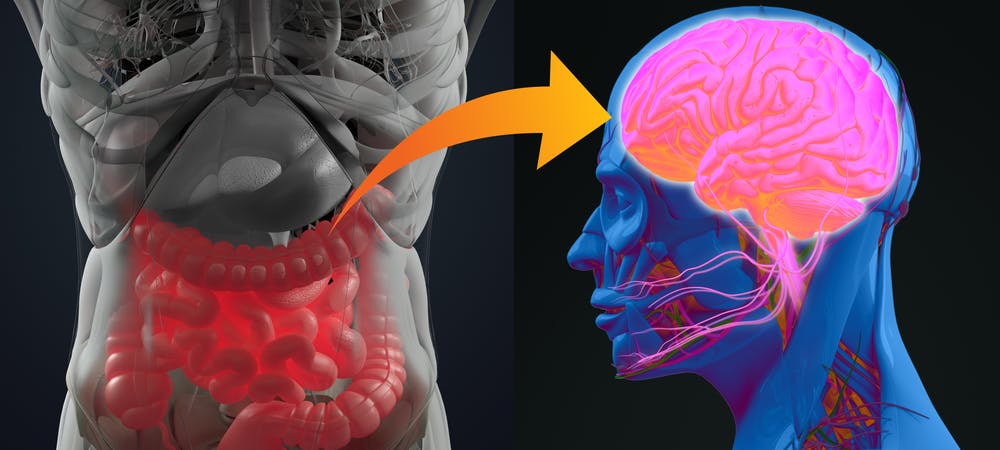Dr. Stephanie Allen is the Global Healthcare Leader for Deloitte and also heads the Health and Human Services practice for Australia. She has over 25 years’ experience in consulting services for health and research institutions on complex planning, clinical, financial and operational transformation programs. She has served on a number of healthcare boards and is passionate about the role of healthcare as an economic driver of prosperity and magnet for research and talent supporting people to lead valuable lives. Stephanie also heads the team that issues the Global Healthcare Outlook Report for Deloitte.
One of the areas I see also in the area of longevity and expanding your health span is the lack of biomarkers to measure progress. And I think this is the same here in terms of prevention, which is much easier than the sick care model because you’re dealing mainly with symptoms. Here you’re dealing with more or less healthy patients to keep them even healthier. We see a number of biomarkers developing and more of them becoming available and slowly being adopted by doctors. But I think this is still something that might be quite a challenge for us in the near future so, in the meantime, wearable technology seems to be the best way to track progress in prevention.
Dr. Allen: I agree that biomarkers are going to become really important in terms of monitoring our everyday health and well-being. Importantly, I think one of the other big trends is bringing together physical and mental health. We know that of people with a mental health condition, often 80 percent of those will have some kind of physical health condition as well. And in the way in which medicine has evolved, they are very much been treated as two separate parts of our health. There is now an increase in the integration and the interrelationship between mental and physical health. A good example would be that, in the past, we’ve often thought that stress and mental anxiety causes inflammation in the gut. We are now recognizing that inflammation in the gut causes mental ill- health through stress and anxiety. So what we’re starting to do is to bring together medicine of the body and medicine of the head to also think about the interrelationship between those biomarkers.
This is so interesting, a few years ago you were also talking, in the context of the healthcare industry, about sleep and the quality of food, and wearable technologies. I think times have changed enormously in the last few years. You mentioned that you’re very active and that you measure your sleep and stress levels, but what other recipes for work-life balance would you recommend?
Dr. Allen: For me, the importance of exercise is critical to my life. That not only enables me to stay physically well and strong, but also it gives me that mental downtime, and that’s really important in terms of my mental well-being as well. I find running on my own or running with friends, relaxing, rejuvenating. It is a social network for me, which we also know is critical to your physical and mental well-being.
We know that of people with a mental health condition, often 80 percent of those will have some kind of physical health condition as well.

Dr. Allen, also in terms of healthy longevity, do you see the role of companies and their focus on health changing? You’re advising quite a number of companies in healthcare. And do you see companies that are outside of the sector also looking into how to implement programs and engage employees into more well-being and health-focused programs?
Dr. Allen:Yes, absolutely. We’re working with a number of companies to review their well-being programs and a lot of them will have focused on employee assistance programs. They have confidential helplines where employees can access counseling and support when things have gone wrong. We are encouraging organizations to think further up the value chain and to invest in those activities that are around health literacy, prevention and early intervention. There’s a very strong business case that supports investment in employees with benefits coming from the attraction and retention of staff. We know particularly that millennials are attracted to companies that will help them to look after their health and well-being as opposed to just thinking of them in terms of production in the workplace. We know that investment in health and well-being also helps with presenteeism and addressing absenteeism, which obviously costs companies significantly. And we’re also trying to encourage organizations to think about the investment in health and well-being as not being a top-line cost. Not a cost that just has to be borne but a bottom-line cost. So that having a healthy and productive and engaged workforce delivers your business objectives, economic growth, profitability and innovation. It delivers those business drivers in ways that a less well-cared for workforce doesn’t. Some of the biggest employers across the world have recognized this and are now starting to invest heavily in the health and well-being initiatives, and see that role as their responsibility. Interestingly, going back to the point I made earlier around physical and mental well-being being equally important, we’re now working with lots of organizations thinking about the support that they’re going to provide for the mental well-being of their employees, not just the physical aspect and working out what level of intervention campaign, ethically, and through what governance structures and mechanisms, it is appropriate to support employees. We’re also doing work with the World Economic Forum on mental well-being.
Thank you very much for sharing with us all those insights and we see that the healthcare industry is really changing.
Dr. Allen: Yes, absolutely. We’re seeing some amazing new players coming into the healthcare industry. Today, retailers, grocery stores, the Walmarts and CVS pharmacies of the world, are seeing themselves not as retail companies but as healthcare companies and offering healthcare services as people shop for other goods. That will become a very strong trend. Even virtual retailers, such as Alibaba are thinking about their healthcare place. We’re starting to see airlines thinking deliberately about how they support the health and well-being of their frequent flyers. That could be through health checks in the lounges before you travel, personalized probiotics both before and after long haul flight, music and mood and ambiance during the flight, and help with jet lag and to get into the right time zone. We’re also seeing some other interesting players. Spotify, which has 13 million songs, is working with dementia patients to try and activate the parts of their brain to do with memory using music. Uber is getting into the healthcare industry, not only in the transportation of patients to their appointments, but also proactively reaching out to the age cohort 35 and below to help them with their health and well-being. Some interesting large non-healthcare companies want to have a stake in the future of the health ecosystem.
We know particularly that millennials are attracted to companies that will help them to look after their health and well-being as opposed to just thinking of them in terms of production in the workplace.

And this is one of the very important aspects as well in terms of what leads us to healthy longevity, the more infrastructure we have available and the more the subject of prevention is becoming part of our life, the easier it is to implement it, helping us to prepare for healthy longevity instead of waiting for a miracle solution to solve the problem. How can we best prepare for healthy longevity in your opinion?
Dr. Allen: I think it’s two things: The combination of all of the data around us being brought together in a meaningful way that supports us to make the right decisions around our health and longevity. And, coupled with that, I am sure that in the next 10 years, all of us will have our genome sequenced, will know about the microbiome environment, and will have full-body scans. So we will know those risk factors, coupled with the real-time information that takes those risk factors and encourages us to minute by minute, hour by hour, day by day to make the right decisions, and then incentivizes us to do so. I think this is the best formula for looking after our longevity because healthcare is personal. And taking that personal responsibility is the only way that we can manage longevity. One of the interesting things coming through the research is that whilst we will have all of that personalized information around our health, our genomic sequence, microbiome analysis, etc., we will also be able to understand how to motivate different people to make healthy choices. At the moment, we have a one-size-fits-all type of approach to healthcare. You get a prescription from your doctor in exactly the same way that I might. And we know that in those instances, only 50 percent of people will take that prescription to a pharmacist and receive those tablets. And only 25 percent of those people will take them in accordance with the instructions, e.g. take your antibiotics for seven days or whatever it is. So there’s a real lack of adherence even to healthcare advice today. Whereas in the future, we will be able to understand through behavioral economics, what will motivate you to complete your course of antibiotics versus what motivates me, and they will be different things for both of us and vary over the course of our lives. The future of healthcare needs to understand what will motivate you to adhere to the advice that you’re given and that’s going to be an important part of looking after population health in a beautiful way.
So on one side, personal responsibility and on the other, personalized solutions.
Dr. Allen: Yes.
Dr. Allen, thank you very much for sharing all this very interesting data with us and it has been really a pleasure talking to you today.
Dr. Allen: Absolutely. Thank you so much. Thank you, Joanna.


